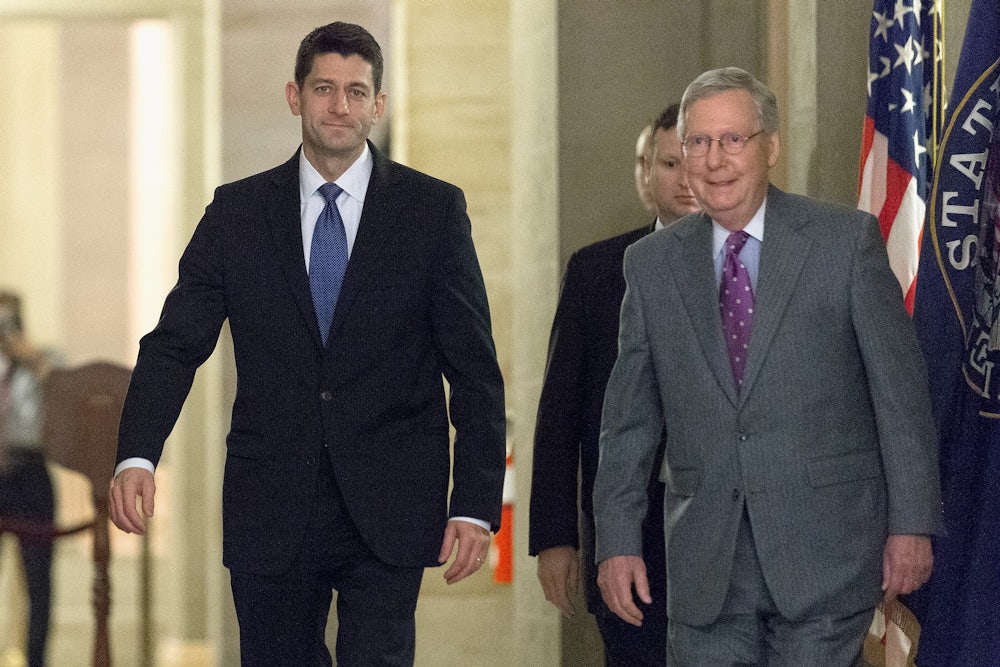In an interview with the Times, Peter Wehner, a former aide to George W. Bush, throws some amusing shade at Mitch McConnell in attempting to explain why Ryan and McConnell have taken different approaches to Donald Trump: “Some are drawn to politics because they like the games and mechanics, and their first priority is the party. Bob Dole fell into that category. Mitch McConnell is also that party guy. And Ryan is just more in that camp of ideas, and he thinks about the party mostly as a vehicle to advance conservatism.” Rep. Steve Womack of Arkansas echoed that line to Politico: “Paul’s a policy guy—it’s well known.”
This dichotomy—McConnell as soulless puppetmaster, Ryan as principled wonk—is familiar to political observers, but the characterization of Ryan is off the mark in telling ways. For one, Ryan has his own electoral calculations in mind in withholding his endorsement of Trump, including protecting members of his caucus. But more importantly, the use of benign words like “ideas” and “policy” and “wonk” mask the fact that Ryan is the party’s ideological gatekeeper, and that his position is under direct threat from a candidate who has shown that significant portions of the Republican Party do not want to roll back the welfare state, cut taxes for the wealthy, and facilitate mass immigration. To endorse Trump would undercut not only his ideological agenda, but his raison d’etre as a political figure.
So when Trump visits Congress today, it’s entirely possible that we’ll see the two sides of the Republican brain respond to him in opposite ways. One will attempt to normalize him by proclaiming that any Republican candidate is far better than the alternative. The other will suggest that Trump’s a freak.
